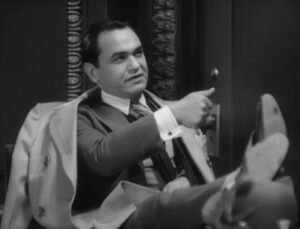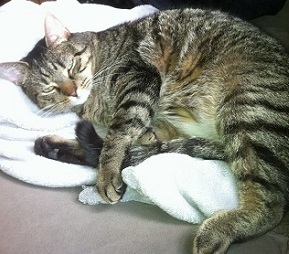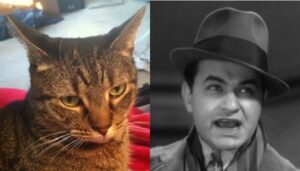
“Suave,” the receptionist at my vet’s office said the other day, reacting to my cat’s name. “Sorry,” she added quickly. “I couldn’t resist.” I laughed, having forgotten that Gerardo’s infamous 1990 song is the first association most people have with the name Rico. My cat does share some traits with the character described by that one-hit wonder, but “suave?” Not so much.
My husband and I had seen Little Caesar a few months before adopting our cat. We’d wavered over a name, and then started noticing some familiar traits. Like our cat’s ego, which seemed to be vastly disproportionate to his size.
We discovered that our newcomer wasn’t exactly sane, and that he felt entitled to what wasn’t his. He wanted our food as well as his own, and jumped up on the counter to paw some while we were eating it. That’s when we realized his actions reminded us of something, and that something was Edward G. Robinson’s breakout role.
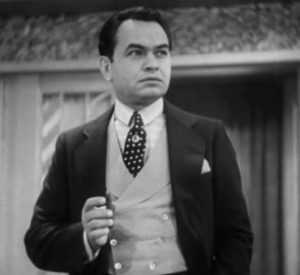
Increasing acquaintance with my cat’s past and behavior has proven that those traits are just the beginning of his resemblance to Edward G. Robinson’s antihero. He was returned once to the shelter because he couldn’t handle associating with other dominant male cats. Sound familiar, Edward G. Robinson fans?
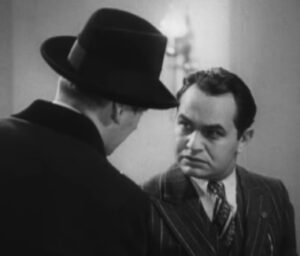
And then there’s his survival instinct. My cat is scrappy. He was discovered outside a dumpster in a New England winter he somehow survived. As if to prove his history, he has knocked over the trash can so many times seeking leftovers that we’re considering the metal tamper-proof kind others purchase to keep out collies and labs. And if a jalapeno potato chip, a piece of broccoli is dropped, he devours it before we can retrieve it. Rico never takes anything for granted, assumes he has to fight for everything he gets. Just like Little Caesar.
And like Robinson’s character, my cat is always voracious (despite a now hefty belly). Little Caesar hungered to be part of the “big time.” He begins the film envying Diamond Pete Montana, a successful gangster, not a nobody like himself, ripping off gas stations. “Money’s alright,” he says to his partner, who admits he’d quit crime if he had enough, “but it ain’t everything. Yeah, be somebody. Look hard at a bunch of guys and know that they’ll do anything you tell them.” He even expresses his longing with a butter knife.
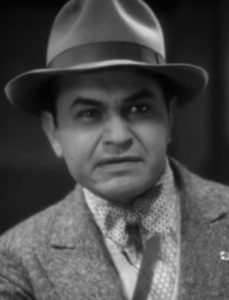
As Little Caesar begins to rise, he can’t help eying others’ pins, diamond rings…
Of course when you think of Robinson, you can’t forget that voice, and how much he liked to use it. My cat too has a great desire for self-expression, and sees no reason to ever cease meowing. Maybe that’s why my husband and I started referring to him as “the Rico,” recalling Robinson’s famous line when he talks of himself in third person: “Is this the end of Rico?”
I think one of the reasons Robinson’s role made his career is because in spite of all of his criminal acts in the film, in spite of his arrogance, there’s something haunting and sympathetic about Little Caesar’s need to prove himself, to be envied.
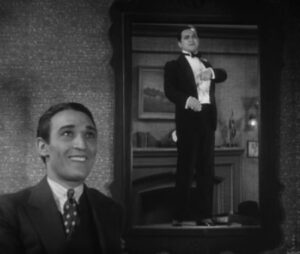
He is in so many ways the embodiment of the American Dream filtered through a shaky understanding. He’s hardly the first—in fiction or real life—to be destroyed by his belief in it. Because he’s played by Edward G. Robinson, we are enthralled by Rico even as we condemn his actions. And in spite of everything, his loyalty to his best pal is always there, even when he most wants to lose it.
Perhaps Little Caesar’s real tragedy is that he was born into the wrong species. In feline form, the ambition, ego, hunger would all be endearing. We’d smile, hug, and pet him for those characteristics, and acknowledge his superiority without any need for proof. After all, it was the thirst for that recognition that inspired Little Caesar’s crimes. Poor man. He should have been a cat.

